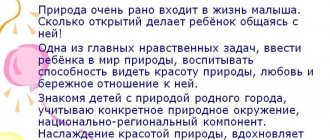Paustovsky showed the problem of the relationship between daughter and mother as accurately as possible in his short story “Telegram”. The work is perceived as an important lesson that no one wants to repeat after reading.
In the center are the mother - Katerina Petrovna - and her child Nastya. The young heroine, having matured, leaves the family home. Where is she going? To the big city, to the artists' studio. She develops, forgets about her mother, she has no time to even send a message to her loved one.
And what about Ekaterina Petrovna? How does she feel? She is alone in the house all day, only her neighbor occasionally visits her. But this circumstance does not give peace to the mother’s soul, because the woman seriously misses her dear daughter, her sweet voice, her familiar face. In old age it is really scary to be alone. What is the paradox of life: you raise your own child with all your might, put your whole soul into him, teach him lessons, but as a result he cannot even remind you of his existence at least once a month.
The tragedy of this work is that time flies inexorably, taking with it the people dear to you. Therefore, being cut off from your family at the end of your life’s journey kills you from the inside, making your heart pound with incredible pain. Too late, people realize that they need to protect loved ones with all their hearts, take care of them, and show respect. Unfortunately, often nothing can be returned. And Paustovsky talks about this. By showing the death of Katerina Petrovna at the end of the story, the author makes it clear that acting like the heroine’s daughter is strictly prohibited! For Nastya, having arrived to her mother, discovers that she is no longer alive. And what is it like to feel powerless before the death of a loved one? The girl decided to visit her mother too late. Too late…
Thus, the work “Telegram” consists of a fairly simple content, but with a really deep meaning that everyone should understand! It is important to appreciate your loved ones! Be in love! Be proud! Be grateful to them for everything! Don’t forget about those who raised you, who put a part of themselves into your development. Otherwise, someday, without calling on time and finding out how your loved one is doing, it will be too late... This should never happen!
Option 2
K. G. Paustovsky’s story “Telegram” is about kindness and heartlessness, about the dreary existence of abandoned old people and the loneliness of people who seem busy and successful.
Nastya (granddaughter of a famous painter, secretary of the Union of Artists) is immersed in her worries: organizing exhibitions and competitions, promoting young talents. Anastasia Semyonovna is so busy that she has no time to go to her mother. Rare letters from her mother reassured her daughter - if she writes, it means she is alive. And although Nastya felt “dumb anxiety,” each time she habitually talked herself out of the trip, remembering crowded trains, shaking in the cart, mother’s tears and village boredom.
Katerina Petrovna (Nastya’s mother) lived in her father’s native village of Zaborye. The house he built was full of paintings and was protected by the state as a regional monument. But she had no one to talk to about “life in St. Petersburg,” about paintings, about a trip with her father to Paris, no one to show her the trinkets dear to her heart.
But most of all, Katerina Petrovna missed her daughter, whom she had not seen for three years. I didn’t expect letters from her and only “re-read a few words” on the money transfer forms, which I received regularly every “two or three months.” The old woman was sorting through the money: to her it smelled like Nastya’s perfume. She wanted to see her daughter goodbye and hold her hands.
And Nastya, rejoicing at the success of the exhibition she organized, listening to speeches about “attention to people,” embarrassed to tears by the praise addressed to her, did not immediately grasp the meaning of the telegram: “Katya is dying.” And when she realized it, she suddenly realized that it was too late, and she would not see the “decrepit old woman abandoned by everyone,” who loved her like no one else. And that she had not said the word “mother” for so long, and that there would be no one more dear to her in her life.
And so it happened. Katerina Petrovna, according to fellow villagers, “died without ... relatives.” Nearby were only the neighbor's daughter Manyushka and the watchman Tikhon, who helped her around the house. Nothing consoled her in her last moments. She unraveled the clumsy, but coming from the heart, trick of Tikhon, who read the telegram from Nastya, written by him on a telegraph form in “clumsy letters.” At the funeral, the “withered yellow hand” of the sincere, warm-hearted old woman was kissed not by her daughter, but by a young, shy teacher who had recently arrived in Zaborye.
Nastya was two days late. She cried the whole night in a cold, dark room. She left secretly so that no one would see or ask anything. I left with a feeling of unbearable heaviness and “irreparable guilt” that no one could relieve except my mother.
Essay based on Paustovsky’s story “Telegram”
Konstantin Paustovsky is a wonderful Russian writer who went through two wars and wrote many books imbued with goodness and love. His story “Telegram” cannot leave anyone indifferent; it touches the most delicate strings of the soul. In the article you will find a school essay on the main idea of this work and the position of the author.
The Telegram tells about an elderly woman, Katerina Petrovna, who lives in the village in her father’s house. He was a famous artist, traveled to countries and cities, communicated with famous people. Katerina Petrovna is looked after by the neighbor's girl Manyushka and the watchman Tikhon. They do it selflessly, just like that, from a pure soul.
Katerina Petrovna has a daughter, Nastya, who left for Leningrad, and comes to her mother very rarely, does not write letters, only sends money, which is completely unnecessary for the woman. Nastya herself worked as a secretary at the Union of Artists, organizing exhibitions and competitions. She helped artists and sculptors exhibit their works and become famous. She did not have time to escape to her mother in the village.
Examples of similar educational works
Did Nastya write letters to Katerina? based on Paustovsky's story "Telegram"
...not just come, but even write a real letter. Katerina Petrovna carefully sorted through the plump pieces of paper. Because of old age... I put it in my purse without reading it - I decided to read it after work. Katerina Petrovna’s letters brought a sigh of relief from Nastya: since mother...
An argument from Paustovsky’s story “Telegram”. Indifference to loved ones. Guilt. ...
...experience and mistakes: about experience that prevents mistakes, about mistakes without which it is impossible to move along the path of life, and about irreparable, tragic mistakes. “Experience and mistakes” ... and punishment.”, M.A. Sholokhov “The Fate of Man”, K.G. Paustovsky “Telegram”., ...
Based on the story, Paustovsky's telegram. Arguments from literature in the direction of “Indifference...
... it, if a person passionately believes in what he is doing. Arguments for an essay on the problem of the relationship between fathers and children A.S. Griboedov “... took her mother’s words seriously. This letter was followed by a telegram that her mother was dying. Only then Nastya...
The main characters of the story by K. G. Paustovsky “Telegram”
... and an old man full of compassion. Only the episode with the fake telegram is fraught with so much warmth and compassion for... the author describes the moment with the fake telegram addressed to the hostess, forged by Tikhon. The telegram gives hope to a dying woman for a moment...
Essay 3
Paustovsky has many different works, written in a sad mood, and making us think about the general meaning of life, and our purpose in it. In his works, he shows life as it is, without using the prism of romanticization. Everything is described as is, and this is perhaps one of the main features of Paustovsky’s individual style.
His work describes events that will most likely affect you greatly. Left alone in the village, the already old woman, feeling the speed of death, reflects on her past and life in general. Having sent a telegram to her daughter in Leningrad asking her to come to her, she begins to wait, but the first week passes, then the second, but her daughter never arrived. Over time, she gets worse and she still can’t wait for her beloved daughter. And two days after the funeral, her daughter arrives. And blaming only himself for everything, he returns to Leningrad.
The work raises a topical problem, even today. This problem is the active migration of the young rural population to the cities. When leaving, they deliberately leave their parents alone, usually without visiting them, so their parents live out their years alone, which, undoubtedly, is very wrong and does not deserve any understanding, because parents are the most precious thing that can be in our lives. Our life is very short and we cannot waste it, we must try to spend as much time as possible with our parents.
This is exactly what Paustovsky is trying to say in his work. It is necessary to take care of your parents as your most precious treasure, to always protect and protect them. Visit them even if you are very far away. So that they always know that they are not alone, that no matter what, you will always be with them. Try to tell them about your love as often as possible, otherwise it may be too late. This is exactly what, in my opinion, Paustovsky is trying to say in his work.
- Author: K. G. Paustovsky
- Work: Telegram
- This essay has been copied 79,555 times
A person’s life is so fast-paced and filled with events that sometimes you forget what is most important in life and what is secondary. This is exactly what happens to Nastya, the heroine of Paustovsky’s story “Telegram”.
Although the entire plot revolves around her name, we meet Nastya herself in the second half of the story. Nastya was born and raised in the remote village of Zaborye. Apparently, the girl was very bored with her native village and everything connected with it, because she has not come to the village for years.
Life does not stand still, Nastya is completely immersed in a new life, she works as a secretary at the Union of Artists. It seems to her that she is doing an important and necessary thing, working with papers and organizing exhibitions. A sense of self-worth is important to her; she likes to be called by her first name and patronymic.
In her own way, Nastya tries in all her manifestations to be a responsible person. At work, Nastya is respected, and it seems to her that she also fulfills her duties as a daughter well. Every month she sends two hundred rubles to her old mother in the village. This looks exactly like repayment of a debt - dry and formal, just money, no letter, no warmth.
This is so unnatural and soulless that Nastya’s mother, Katerina Petrovna, does not believe that money is all that her daughter simply forgot about her. She simply cannot think about it, and she is too weak. Nastya is the only relative, and how hard it is to realize that her daughter does not need her. It’s so hard that the elderly woman simply doesn’t think about it.
The only people who truly care about Katerina Petrovna are not relatives at all. This is the watchman Tikhon and Manyushka, the neighbor’s daughter. These people do not speak loud words, they actually help Katerina Petrovna: they heat the house, clean, cook, work in the garden. It is these people who, through their lives, embody Christ’s commandment of selfless love for one’s neighbor. And they are the ones who are next to the elderly woman in her last moments.
When Katerina Petrovna is already dying, Tikhon sends Nastya a telegram. Having read the meager words, the girl does not immediately understand what exactly happened. The insight was not quick, but how painful it was.
Nastya does not immediately realize that so imperceptibly, in the bustle, she has lost her most precious thing. What are all her exhibitions worth, the attention of strangers and indifferent people, if the only person in the whole world who truly loved her was her lonely old mother. And what a pity that Nastya understands her mistakes only when it is too late and nothing can be corrected. It's too late to even ask for forgiveness.
Check out these essays
- What does the story “Telegram” make you think about? A painful feeling arises after reading K. G. Paustovsky’s story “Telegram”. Not light sadness, quiet sadness and conciliatory harmony with the world, but some kind of heavy dark stone in the soul. It’s as if the feeling of guilt that befell Nastya too late falls to some extent on me as well. In general, such topics are not so typical of the well-known Paustovsky, studied at school and loved by young children. We all know an author who respects and appreciates his native nature, a master of subtle and touching descriptions [...]
- Warm bread (essay) How often in life we, without thinking, hurt others. How much can one kind word, one compassionate deed save? Perhaps it was precisely this idea that Paustovsky wanted to convey to the reader with the story “Warm Bread.” The main character of the story, Filka, nicknamed “You!”, is a boy with a very difficult character. Filka is distrustful, intractable, and rude to everyone, even to his old grandmother. For the time being, he gets away with his rudeness, but only until the boy offends a wounded horse, the favorite of all […]
- Hare's Paws (essay) Do good - and it will come back to you, do evil - wait for retribution. Everything in life is interconnected. Probably, Paustovsky’s story “Hare’s Paws” is precisely about this: about the interconnection of all living things, about the importance of love and compassion in life. The title of the story is very unusual and immediately makes the reader think about why hare feet? What's so special about them? Well, I got caught in a forest fire with my scythe and was saved, it’s an everyday thing. Is it really worth writing a whole story about this? It turns out that it’s worth it, because the hare in the story is not a simple one, but [...]
- Basket with fir cones (essay) In his work, Konstantin Paustovsky often raises philosophical questions about the meaning of life, about finding one’s place in this world, about the difficulty of choice. The story “Basket with Fir Cones” is no exception. Reading this light, life-affirming work, you understand that the best things in life are given to a person for free. The main characters of this work, composer Edvard Grieg and the little girl Dagny, the daughter of a forester, meet in the forest. The composer is simply walking, admiring the unique autumn landscape, and […]
- What does the fairy tale “Warm Bread” make you think about? A beautiful and kind little “fairy tale” by Konstantin Paustovsky under the cozy homely title “Warm Bread”. Despite the apparent simplicity and simplicity of the plot, the somewhat folk language, short but colorful descriptions of natural phenomena, this is a real work of fiction. And it, along with multi-volume novels, makes the reader stop, think, and decide something for himself. What to think about? What exactly to decide? More on this below. Let's go from smaller to larger. Let’s leave the main idea […]
- The theme of love in Tyutchev's lyrics (essay) The talented Russian poet F. Tyutchev was a man who knew how to love deeply, passionately and devotedly. In Tyutchev’s understanding, love is a “fatal duel”: both the merging of souls and their confrontation. The poet's poems about love are full of drama: Oh, how murderously we love, How in the violent blindness of passions We most certainly destroy what is dear to our hearts! Tyutchev’s poems contain a storm of feelings; he describes love in all its diversity of manifestations. The poet believed that fate leads a person to true love. […]
- Comparative characteristics of “Raskolnikov and Luzhin” (table) Raskolnikov Luzhin Age 23 years old About 45 years old Occupation Former student, dropped out due to inability to pay Successful lawyer, court advisor. Appearance Very handsome, dark brown hair, dark eyes, slender and thin, above average height. He dressed extremely poorly, the author points out that another person would even be ashamed to go out into the street dressed like that. Not young, dignified and prim. There is a constant expression of grumpiness on his face. Dark sideburns, curled hair. The face is fresh and [...]
- Realism of the novel Eugene Onegin (essay) It has long been recognized that the novel “Eugene Onegin” was the first realistic novel in Russian literature. What exactly do we mean when we say “realistic”? Realism, in my opinion, presupposes, in addition to the truthfulness of details, the depiction of typical characters in typical circumstances. From this characteristic of realism it follows that truthfulness in the depiction of particulars and details is an indispensable condition for a realistic work. But this is not enough. Even more important is what is contained in the second part […]
- Characteristics of the main characters of Pushkin’s story “The Shot” The work of A. S. Pushkin predetermined the development of Russian literature and laid the foundations of the modern Russian language. The composition of the story “The Shot” is interesting and complex due to its multi-level nature, which is created by several narrators and a complex plot. A. S. Pushkin himself, who is at the top step of the compositional ladder, formally transfers authorship to Ivan Petrovich Belkin. Imaginary “authorship” leads to the creation of a multi-level text, and this in turn allows for a deeper and broader […]
- Rodion Raskolnikov and Sonya Marmeladova in the novel “Crime and Punishment” Impoverished and degraded student Rodion Romanovich Raskolnikov is the central character of Fyodor Mikhailovich Dostoevsky’s epoch-making novel “Crime and Punishment.” The author needs the image of Sonya Marmeladova to create a moral counterbalance to Raskolnikov’s theory. Young heroes are in a critical life situation when they need to make a decision on how to live further. From the very beginning of the story, Raskolnikov behaves strangely: he is suspicious and anxious. In the sinister plan of Rodion Romanovich, the reader […]
- The benefits of reading (essay) Nowadays, reading is the most used way of transmitting information, and a book is its carrier. However, this has always been the case, at all times. Therefore, it is important and even necessary to get carried away with reading, because it is not without reason that they say: “If you have the information, you have the situation.” But what is the benefit of reading, and is there any at all? Firstly, constant reading trains the brain. When you read, the way you perceive the world changes: you begin to fantasize, create certain “book” images (places, people, events). In addition, books improve memory, [...]
- Sophia is drawn unclearly (essay) In the comedy “Woe from Wit”, Sofya Pavlovna Famusova is the only character conceived and performed close to Chatsky. Griboyedov wrote about her: “The girl herself is not stupid, she prefers a fool to an intelligent person...”. Griboyedov abandoned farce and satire in depicting the character of Sophia. He introduced the reader to a female character of great depth and strength. Sophia was “unlucky” in criticism for quite a long time. Even Pushkin considered the author’s image of Famusova a failure; “Sophia is sketched unclearly.” And only in 1878 Goncharov, in his article […]
- The image of Matteo Falcone Prosper Merimee is one of the greatest French writers of the 19th century. The action of the novel takes place on the island of Corsica. The main character of the story is Matteo Falcone. He is a sharp shooter, a strong and proud man, a true Corsican with a strong character and unbending will. Matteo's son Fortunatto is the hope of the family. A boy hides a wounded fugitive in a haystack - a criminal being pursued by the police. “He was a bandit who, having gone into the city at night to buy gunpowder, was ambushed by Corsican […]
- An essay based on a painting by S.Yu. Zhukovsky “Autumn. Veranda" Stanislav Yulianovich Zhukovsky is a famous Russian artist. His paintings are known in many countries around the world. Despite the fact that Stanislav Yulianovich was of Polish-Belarusian origin, he always considered Russia his homeland. That is why most of his paintings depict Russian landscapes. One of his most famous works is “Autumn. Veranda". This landscape reflects one of the most wonderful times of the year - autumn. During this period, all of nature is preparing for imminent winter hibernation, but first it pours out all its […]
- The comedy “The Inspector General” in theater and cinema The comedy in five acts by the greatest satirical author of Russia is, of course, iconic for all literature. Nikolai Vasilyevich finished one of his greatest works in 1835. Gogol himself said that this was his first creation written with a specific purpose. What was the main thing the author wanted to convey? Yes, he wanted to show our country without embellishment, all the vices and wormholes of the social system of Russia, which still characterize our Motherland. “The Inspector General” is immortal, of course, [...]
- The hero and the uprising in the assessment of Pushkin and Yesenin In the novel “The Captain's Daughter” and in the poem “Pugachev”, two authors from different times describe the leader of the peasant uprising and his relationship with the people. Pushkin was seriously interested in history. I turned to the image of Pugachev twice: when working on the documentary “The History of the Pugachev Rebellion” and in “The Captain’s Daughter”. Pushkin’s attitude towards the uprising was complex; he considered the main features of the rebellion to be the absence of a long-term goal and bestial cruelty. Pushkin was interested in the origins of the uprising, the psychology of the participants, the role […]
- The Great Patriotic War in the literature of the 20th century (essay) The Great Patriotic War is certainly the central historical event of the 20th century. Therefore, it is not surprising that many great literary works have been written about her, both in prose and poetry. Of course, the main contribution here was made by Soviet writers, who were familiar first-hand with the horrors of that terrible war. Many writers of that time themselves took part in hostilities on the fronts of the Great Patriotic War and in their works convey the “trench” truth of that epoch-making time, […]
- The image of Doctor Startsev in Chekhov's story “Ionych” The hero of the story, Dmitry Ionych Startsev, is a young doctor assigned to the zemstvo hospital in Dyalizh, not far from the provincial town of S. He was an ardent young man with high ideals and a desire to serve the benefit of people and the Fatherland. He spoke with enthusiasm about happiness and love (“Oh, how little those who have never loved know!”), about the benefits of work and the happy future of the state. Young Startsev devoted himself completely to his work and even on holidays had no free time. His beliefs set him apart from the residents [...]
- Fonvizin's sad laughter (essay) D.I. Fonvizin lived during the reign of Catherine II. This era was dark, the forms of exploitation of serfs reached the limit when only a Russian revolt, “cruel and merciless,” could follow. The enlighteners expressed deep sympathy for the situation of the peasants. Fonvizin also belonged to them. Like all educators, the writer was afraid of the complete freedom of the peasants, so he advocated for easing their lot, placing high hopes on education and enlightenment. Mitrofan is the only son of provincial [...]
- Why I want to work in the prosecutor's office Power and responsibility, justice and prudence, crime and law. Everything is on them, on those people who guard our order, our well-being, our lives, in the end, day and night! When they ask me what I want to be, I answer, “I want to work in the prosecutor’s office.” Many people make fun of me, some say that with such a salary I will be fit to rob banks myself. I endure because I know what I want. Serving people, maintaining order, protecting the law - this is my goal in this life. Every day on [...]
Telegram - essay
The story “Telegram” by Paustovsky reveals some features in the relationship between parents and children, in this case about the relationship between mother and daughter. The story makes me think, am I doing the right thing with my family and friends? Many recognize themselves or their friends in this story. Maybe after reading this story they will reconsider their behavior and draw the right conclusions for themselves.
Katerina Pavlovna, an elderly woman, has been waiting for Nastya, her daughter, to come home for quite a long period of time. She lives in an old house all alone, her daughter went to Leningrad, lives and works there and seems to have completely forgotten about her mother. Common sense told the old woman that her daughter was a young girl, she had her own life, her own affairs and concerns, and she was not very interested in how and how her elderly mother lived. Katerina Pavlovna in no way blamed her daughter, she understood her, she was just waiting... It’s amazing how loving a mother’s heart can be, what kind of excuses a mother will not find for her child.
Nastya is a beautiful, kind, sympathetic girl, always ready to help and support others. She works as a secretary and work consumes all her free time. But she actively takes part in the lives of other people. For example, she organized a personal exhibition for one young talented sculptor. In Leningrad she is valued and taken into account; here she is like a duck to water. She always found time for others in between her daily activities. The crazy rhythm of the city simply sucked her in. What about the village? Complete monotony and boredom. Deep down, Nastya feels guilty, her heart is torn by homesickness. She understands that she is acting rudely towards her mother; she is terribly ashamed and hurt by the realization of this.
Tired of constant waiting, Katerina Petrovna stops waiting and hoping that her daughter will at least bother to visit her before her death. Ultimately, Nastya’s mother dies without receiving news from her beloved daughter. Having been late to her mother, without saying goodbye to her, Nastya is very repentant and understands that she has made the most terrible mistake in her life and no one except her dear, beloved, only mother will understand or forgive her.
The whole tragedy of this cautionary tale is that mother and daughter actually love each other very sincerely and tenderly, but at the same time they are separated by a whole abyss. The mother understands her daughter’s constant employment, but still hopes to see her own child until the last.
Telegram Paustovsky heroes
In the work “Telegram” by Paustovsky, the main characters are a lonely old woman Katerina Petrovna and her daughter Nastya. Katerina Petrovna is lonely in her old age, but she does not condemn her daughter, she understands that she has her own life, and she has nothing to do in Zaborye. At the same time, the woman waits, waits and believes all the time.
Nastya is a business girl, all about work. To say that she is callous would not be correct.
The girl helps the sculptor get out into the world, she thinks about her mother, helps her with money, but all the time she’s busy with her business, she doesn’t find time to just come and visit. And when she pulled herself together, the inevitable happened.
Her mother is dying, but the girl herself did not even have time for the funeral. But all the way she mentally said, “If only I could make it in time, if only she could see me, if only she would forgive me.”
To be honest, I’m currently writing an essay “Telegram” based on Paustovsky, and I’m still impressed by what I read.
I really don’t want this to be the case in reality, for children to forget about their parents, although the reality is different. But I know one thing, I will never forget my parents and will always visit them.
And after I finish the essay, I’ll go to them now, hug them and tell them how much I love them.





